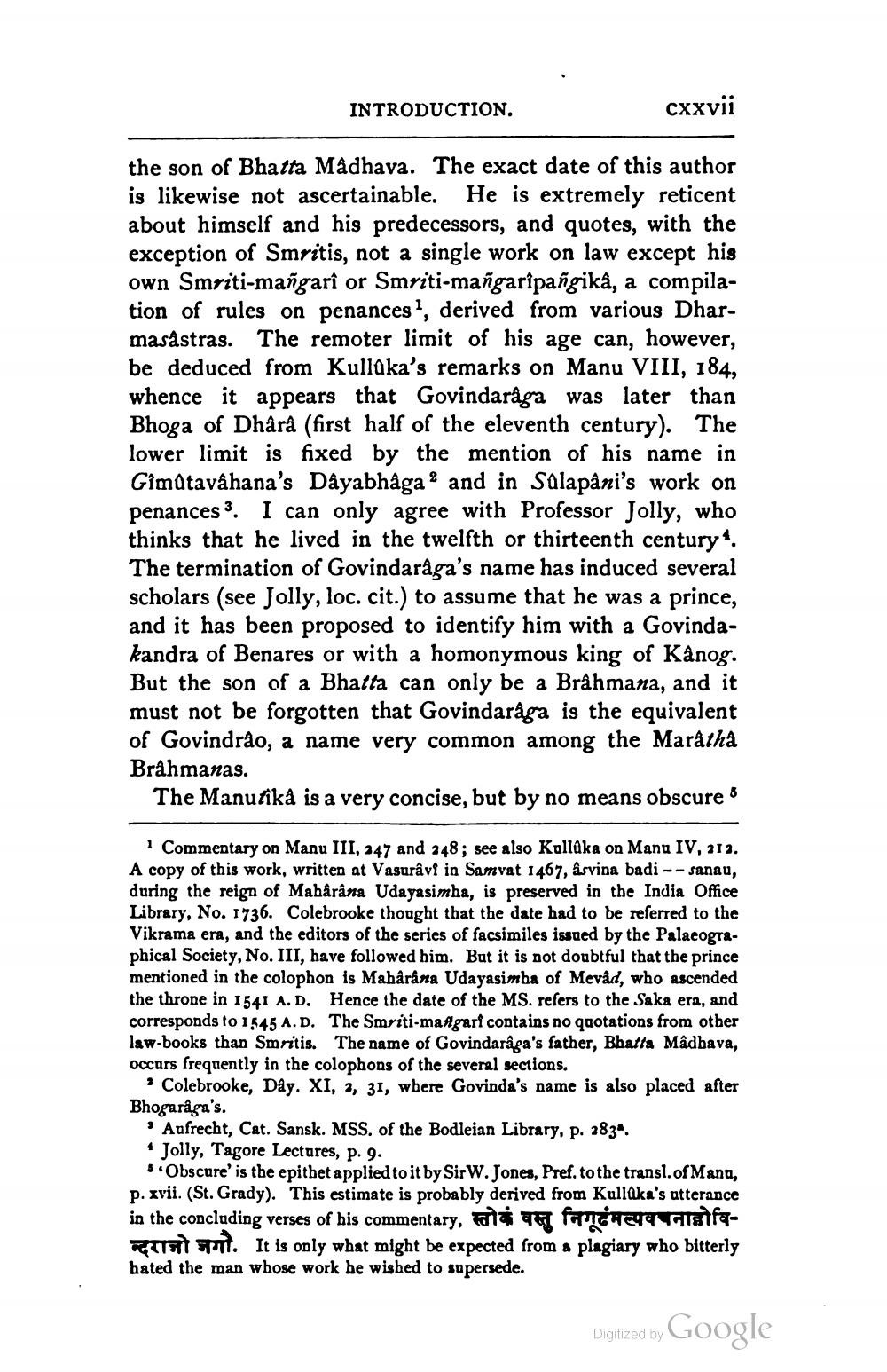________________
INTRODUCTION.
cxxvii
the son of Bhatta Madhava. The exact date of this author is likewise not ascertainable. He is extremely reticent about himself and his predecessors, and quotes, with the exception of Smritis, not a single work on law except his own Smriti-mañgarî or Smriti-mañgaripangika, a compilation of rules on penances ?, derived from various Dharmasåstras. The remoter limit of his age can, however, be deduced from Kullaka's remarks on Manu VIII, 184, whence it appears that Govindaraga was later than Bhoga of Dharà (first half of the eleventh century). The lower limit is fixed by the mention of his name in Gimatavahana's Dayabhaga ? and in Sulapâni's work on penances 3. I can only agree with Professor Jolly, who thinks that he lived in the twelfth or thirteenth century The termination of Govindarága's name has induced several scholars (see Jolly, loc. cit.) to assume that he was a prince, and it has been proposed to identify him with a Govindakandra of Benares or with a homonymous king of Kanog. But the son of a Bhatta can only be a Brahmana, and it must not be forgotten that Govindaraga is the equivalent of Govindrào, a name very common among the Maratha Brahmanas.
The Manutika is a very concise, but by no means obscure 6
hicana era, and the calcbrooke thought that is preserved in
1 Commentary on Manu III, 247 and 248; see also Kullaka on Manu IV, 213. A copy of this work, written at Vasurâvi in Samvat 1467, asvina badi -- Sanau, during the reign of Mahârâna Udayasimha, is preserved in the India Office Library, No. 1736. Colebrooke thought that the date had to be referred to the Vikrama era, and the editors of the series of facsimiles issued by the Palaeographical Society, No. III, have followed him. But it is not doubtful that the prince mentioned in the colophon is Maharana Udayasimba of Mevåd, who ascended the throne in 1541 A. D. Hence the date of the MS. refers to the Saka era, and corresponds to 1545 A.D. The Smriti-maAgarf contains no quotations from other law-books than Smritis. The name of Govindaraga's father, Bhatta Mâdbava, occurs frequently in the colophons of the several sections.
· Colebrooke, Day. XI, 2, 31, where Govinda's name is also placed after Bhogaråga's.
Aufrecht, Cat. Sansk. MSS. of the Bodleian Library, p. 283o.
Jolly, Tagore Lectures, p. 9. S.Obscure' is the epithet applied to it by Sir W. Jones, Pref. to the transl. of Mana, p. xvii. (St. Grady). This estimate is probably derived from Kullaka's atterance in the concluding verses of his commentary, स्तोकं वस्तु निगूढमत्यवचनाहोविP rint spil. It is only what might be expected from a plagiary who bitterly hated the man whose work he wished to supersede.
Digitized by Google




